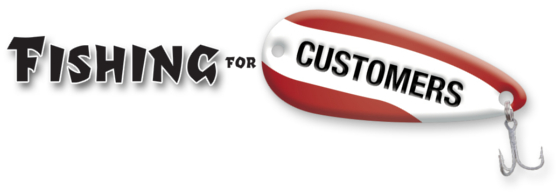Don’t expect most scientists to admit it, but a physics technique called the Fermi Question provides a quick and simple way for business people to determine whether a new market is large enough to be profitable.
Enrico Fermi was one of most well-rounded physicists of the last century, a Nobel Prize winner who was able to switch from practical to theoretical and back to practical, and make it look easy.
Until his death in 1954, Enrico taught the estimating technique that now bears his name. In the absence of definite knowledge or an exact answer, a Fermi Question’s goal is to obtain an informed estimate by making reasonable assumptions.
Fermi Used Common Sense in Science
Fermi would demand that his students at the University of Chicago explain to him how many grains of sand are on the world’s beaches. How far can a crow fly without stopping? How many atoms of Caesar’s last breath do you inhale with each lungful of air? How many piano tuners are there in Chicago?
Fermi Questions required students to use their understanding of the world, and their everyday experience, to make rough approximations in areas of which they had no knowledge.
But as I said, you and I will find the Fermi Question quite valuable as a business tool.
Fermi’s Classic Piano Tuner Question
Assume that you’re a young piano tuner who’s still ruffling the pages of their jazz piano tutorial. You’re about to set off into the world to seek your fortune.
Your favorite uncle lives in Chicago. He says you’re welcome to come stay with him while you get your piano tuning business off the ground. Shall we analyze the market potential before you accept his offer and open a piano tuning business in Chicago?
Start with the population of Chicago: according to estimates from the most recent U.S. Census, roughly 9,400,000 people live in the greater Chicago metro area.
The Census Bureau also helps us estimate that there are two and a half people per average household. Therefore Chicago is home to 3,760,000 families.
Fifty years ago one home in four had a piano, but since the Beatles burst on the music scene, people don’t gather ‘round the piano to sing, anymore. Shall we assume that only one household in 30 owns a piano today? That would lead us to conclude that there are 125,333 pianos in Chicago.
Some performers with critical ears may demand tuning at each changing of the seasons. Those owners are likely offset by others who own a piano, but never tune it. On the average, a fair assumption might be that each of those 125,333 pianos in Chicago are tuned once per year – 125,333 piano tunings per year.
Allowing for commute time across the greater Chicago metro area, perhaps a fair estimate is that a technician can tune three pianos each day. If he works a five-day, fifty-week year, each tuner could service 750 pianos each year.
Divide 125,333 pianos by 750 tunings, and there appears to be enough work to employ 167 piano tuners.
How Close Did We Come?
A quick look at switchboard.com under “piano servicing and tuning” tells us that 126 businesses in the greater Chicago area offer piano tuning.
How many tuners operate out of each business?
We should perhaps gather some hard data on this one with a few phone calls, but if one third employed two tuners, and the other two thirds employed only one, the average would be one and a third tuners per piano servicing business: 164 piano tuners competing in a market which appears to have enough work to employ 167.
Not bad.
Maybe our next step should be to ask for price quotes from future competitors. Then we could determine whether one could make a living performing 750 piano tunings per year. But regardless of the conclusion, we were able to make an informed decision with a couple of quick Google searches and about ten minutes of “think time.”
Our Goal Isn’t Accuracy
The Fermi Question won’t tell you with absolute accuracy whether a business proposition is feasible, but it can quickly provide a ballpark figure to eliminate those which can’t work.
Using this technique, could you quickly estimate the number of life insurance salespeople that could make a living in Phoenix? The number of profitable convenience stores in Pensacola? The number of brew pubs in Raleigh?
Would application of the Fermi Question help you to determine whether your bedding store should expand into sofas and loveseats?
Could you make a better decision about whether an additional salesperson could generate enough sales to cover his salary?
Might you use estimates like these to help you decide whether it makes sense to approach your primary competitor with a buyout offer?
I’m not suggesting that you don’t need hard data. I’m a major proponent of acquiring as much market data as is available, or that you can afford. You’d agree, though, wouldn’t you, that when the data’s not available, an informed estimate beats an uninformed guess every time?
Tell the physicists to move over. We’re co-opting one of their tools, and using it to fish for customers.
Your Guide,
Chuck McKay
 Your Fishing for Customers guide, Chuck McKay, gets people to buy more of what you sell.
Your Fishing for Customers guide, Chuck McKay, gets people to buy more of what you sell.
Have questions about estimating your chances of success in a new market? Call Chuck at 317-207-0028 for help calculating the odds. Or, you can reach him by email at ChuckMcKay@ChuckMcK
Drop Chuck a note at ChuckMcKay@ChuckMcKayOnLine.com. Or call him at 304-208-7654.

